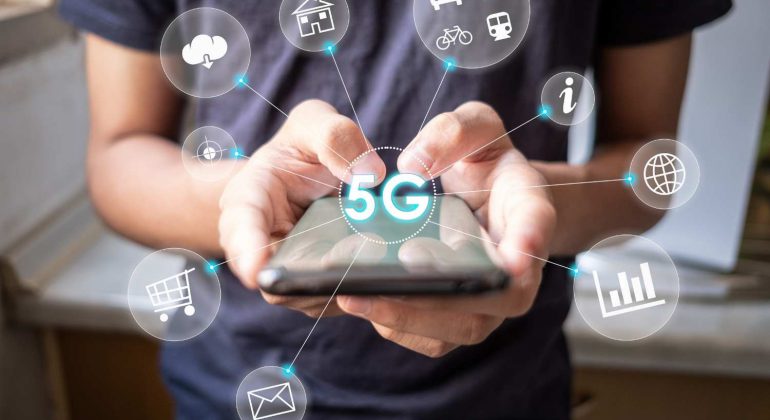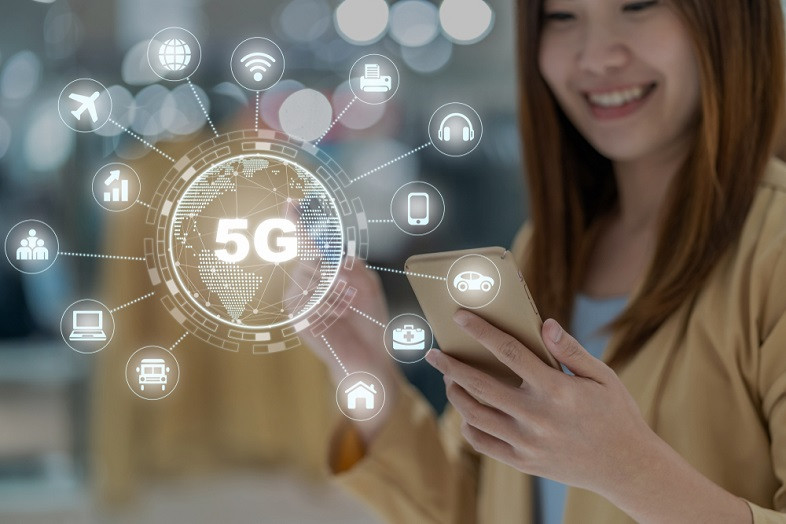Table of contents [Show]
- 1. Faster and More Reliable Internet
- 2. Enhanced Streaming and Entertainment
- 3. Internet of Things (IoT) Expansion
- 4. Autonomous Vehicles and Smart Transportation
- 5. Smart Cities
- 6. Improved Healthcare
- 7. Economic Implications
- 8. Education and Remote Learning
- 9. Workplace Evolution
- 10. Challenges and Concerns
1. Faster and More Reliable Internet
- Speed: 5G is expected to provide internet speeds up to 100 times faster than 4G, allowing for smoother browsing, quicker downloads, and faster streaming. This means users will experience near-instant access to high-definition content, such as 4K or even 8K videos.
- Reliability: With a more stable connection, you can expect fewer interruptions during video calls, gaming, and online meetings, especially in high-density areas like stadiums, airports, and city centers.
2. Enhanced Streaming and Entertainment
- Ultra-HD and VR: Streaming content in ultra-high definition (4K, 8K) will become more accessible without buffering. Additionally, 5G's low latency will enhance augmented reality (AR) and virtual reality (VR) experiences, making immersive gaming, virtual concerts, and 3D streaming more mainstream.
- Live Events: 5G will enable better live-streaming experiences, with more cameras, drone shots, and interactive features during events like sports games or concerts, providing a more dynamic and engaging experience for remote viewers.

3. Internet of Things (IoT) Expansion
- Smart Homes: With 5G, smart devices in your home (like thermostats, security cameras, and voice assistants) will become more responsive, interconnected, and efficient. The ability to handle vast amounts of data simultaneously will lead to smoother and faster interactions between devices.
- Wearables and Health: 5G will enable real-time health monitoring through wearable devices, improving the accuracy of data like heart rate, glucose levels, and sleep patterns. Additionally, remote surgeries and telemedicine will become more effective and safer as 5G reduces latency, making it possible for doctors to perform procedures from afar with precision.
4. Autonomous Vehicles and Smart Transportation
- Self-Driving Cars: 5G will be crucial in the development of autonomous vehicles, as it will allow for instantaneous communication between vehicles and infrastructure (e.g., traffic lights, road sensors) to prevent accidents, improve traffic flow, and optimize routes.
- Connected Cities: 5G will enable smart transportation systems, where traffic lights, buses, and even public transportation apps communicate seamlessly with each other to reduce congestion and increase efficiency. Real-time updates about public transport and road conditions will improve overall travel experiences.
5. Smart Cities
- Infrastructure and Efficiency: 5G will help cities implement smarter infrastructure. For example, smart lighting systems will adjust based on movement or time of day, while waste management systems will optimize pick-up schedules based on real-time data.
- Environmental Monitoring: 5G will allow for more efficient monitoring of environmental conditions, from air quality to noise levels. Real-time data can be used to tackle pollution or to respond faster to natural disasters like floods or fires.
6. Improved Healthcare
- Remote Monitoring and Diagnostics: With 5G, medical professionals can use high-definition video for remote consultations or conduct real-time patient monitoring, which is particularly valuable for rural or underserved regions.
- Telemedicine Growth: For doctors to diagnose or treat patients remotely, 5G’s low latency is critical in providing real-time video consultations, ensuring clear and immediate communication between healthcare providers and patients.
7. Economic Implications
- Job Creation and Innovation: 5G will drive the development of new industries, technologies, and business models, potentially creating millions of jobs worldwide in sectors like technology, telecommunications, and manufacturing.
- Business Transformation: Companies will be able to use 5G to offer new services and improve operational efficiency, such as using augmented reality for remote work or deploying AI-powered customer service bots with improved performance.
8. Education and Remote Learning
- Virtual Classrooms: With faster speeds and more reliable connections, 5G will enhance online education. Students can participate in virtual classrooms, interact with classmates in real-time, and engage with AR/VR content for an interactive learning experience.
- Global Access to Education: Remote areas with limited access to traditional education will benefit from 5G-powered digital learning platforms, helping bridge the educational gap.
9. Workplace Evolution
- Remote Collaboration: With 5G, video conferencing will be clearer and smoother, enhancing virtual team collaboration. Real-time communication and file-sharing in high-quality video meetings will become standard in remote and hybrid work environments.
- Productivity Tools: Cloud-based applications will become more efficient, enabling employees to work seamlessly from anywhere. Businesses can deploy real-time analytics, improve supply chain logistics, and automate operations to boost productivity.
10. Challenges and Concerns
- Privacy and Security: As more devices become interconnected through 5G, concerns around privacy, data breaches, and cybersecurity risks grow. The massive amounts of data transmitted by IoT devices could be vulnerable to hacking if not adequately protected.
- Digital Divide: While urban areas are likely to benefit quickly from 5G, rural and less developed areas might face delays in access, potentially exacerbating the digital divide. Governments and telecom providers will need to ensure equal access to 5G’s benefits.









